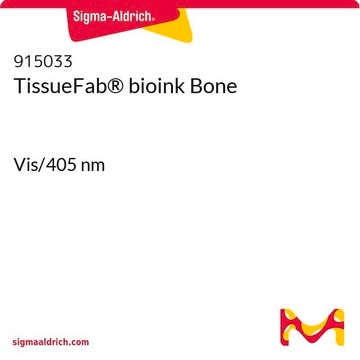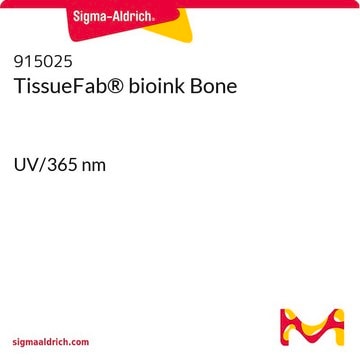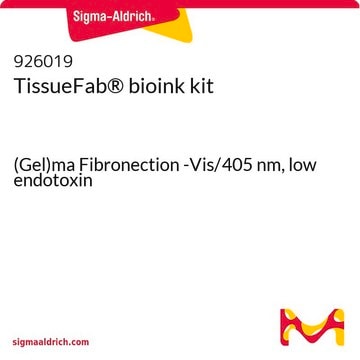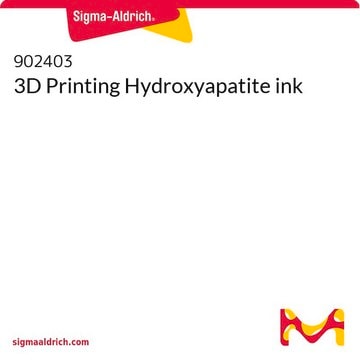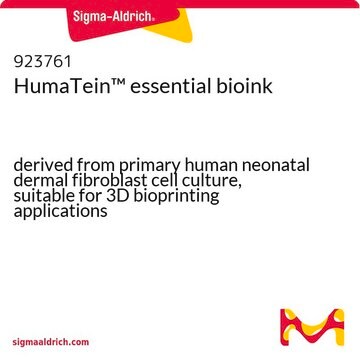915637
TissueFab® bioink Bone
support gel
Sinónimos:
3D Bioprinting, 3D printing, Bioink, TissueFab
About This Item
Productos recomendados
description
suitable for 3D bioprinting applications
Quality Level
form
powder
color
white
application(s)
3D bioprinting
¿Está buscando productos similares? Visita Guía de comparación de productos
Categorías relacionadas
Application
Packaging
Legal Information
Storage Class
11 - Combustible Solids
wgk_germany
WGK 3
Elija entre una de las versiones más recientes:
Certificados de análisis (COA)
Lo sentimos, en este momento no disponemos de COAs para este producto en línea.
Si necesita más asistencia, póngase en contacto con Atención al cliente
¿Ya tiene este producto?
Encuentre la documentación para los productos que ha comprado recientemente en la Biblioteca de documentos.
Artículos
Bioinks enable 3D bioprinting of tissue constructs for drug screening and transplantation; select suitable bioinks for specific tissue engineering.
Bioinks enable 3D bioprinting of tissue constructs for drug screening and transplantation; select suitable bioinks for specific tissue engineering.
Bioinks enable 3D bioprinting of tissue constructs for drug screening and transplantation; select suitable bioinks for specific tissue engineering.
Bioinks enable 3D bioprinting of tissue constructs for drug screening and transplantation; select suitable bioinks for specific tissue engineering.
Nuestro equipo de científicos tiene experiencia en todas las áreas de investigación: Ciencias de la vida, Ciencia de los materiales, Síntesis química, Cromatografía, Analítica y muchas otras.
Póngase en contacto con el Servicio técnico